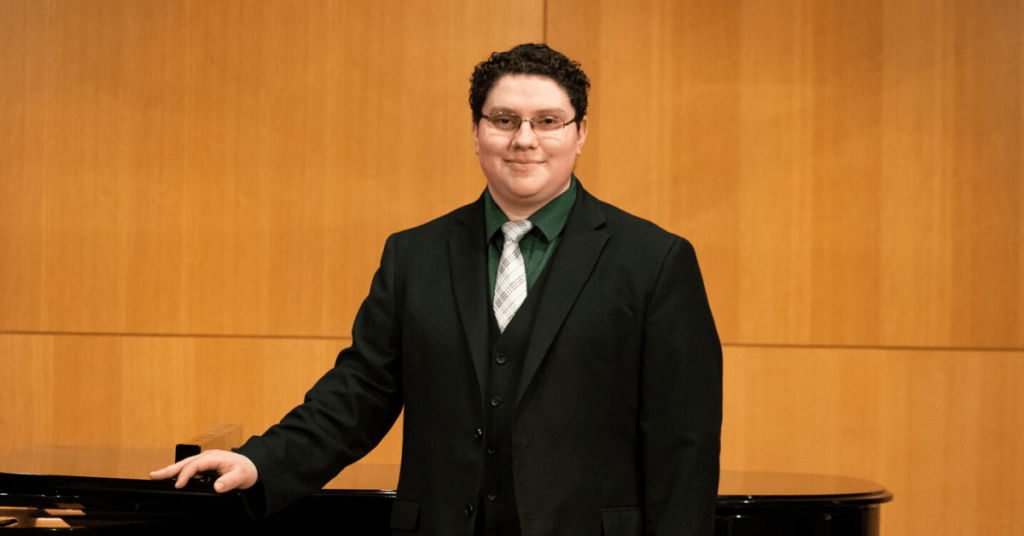David Alexander Senior Voice Recital Highlights
David Alexander recently performed his senior voice recital. Alexander expresses his thankfulness to the Lord for his voice instructor Dr. Dean Kurtz and his other teachers. He reflects, “Thank you for Dr. Kurtz and his constant encouragement. Thank you for teachers who have walked me through every major collegiate moment I’ve encountered. May they be blessed for their impact on me, as I have been blessed by each of them.” Here are some highlights from the recital and David’s thoughts on those pieces.
No Greater Love, Koerts
“This song is the answer to the plea for mercy. John 3:16 and John 15:13 provide much of the text. ‘God so loved the world, that He gave His only begotten Son, that whosoever believeth on Him should not perish, but have everlasting life.’ ‘Greater love hath no man than this, that a man lay down his life for his friends.’ In response to the human condition of sin, God made a way. There is no greater love than the love of Christ, which drove Him to the cross on our behalf, and causes Him to stand in intercession for us now.”
“The Vagabond” by R.V. Williams
“Robert Louis Stevenson wrote many poems which have been set to music over the years. His series of poems about ‘The Traveler’ would catch the attention of a young musician in the early 20th century. Ralph Vaughan Williams would proceed to write a song cycle which he called ‘Songs of Travel,’ comprised of nine of Stevenson’s poems set to music. Over the course of my years studying with Dr. Kurtz, I’ve enjoyed singing several of these songs. This piece is the first in the song cycle. Listen for the resolute step of the traveler, set in the left hand of the piano accompaniment.”
“Largo al factotum” from Il Barbiere di Siviglia by Rossini
“Il barbiere di Siviglia (The Barber of Seville) is an opera written by Gioachino Rossini in 1816. The opera stars Figaro, an enterprising jack-of-all-trades who acts as a barber, matchmaker, schemer, trickster, and servant to the community in general. His introduction to the audience is this aria, in which he describes how useful he is and the stress that comes with being in such high demand. The section where he imitates the crowds calling his name by repeating ‘Figaro! Figaro! Figaro!’ has become one of the most recognizable moments in operatic history.”


